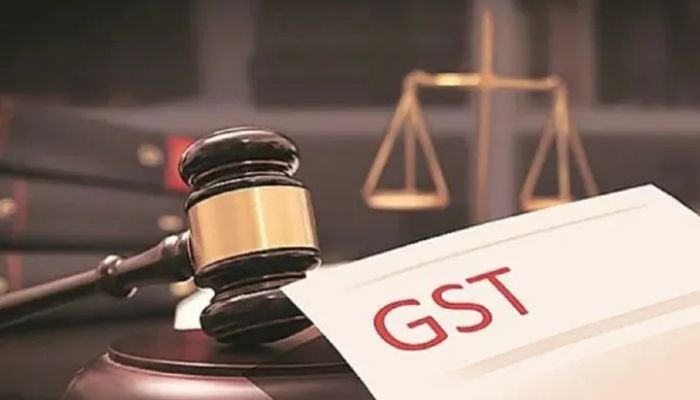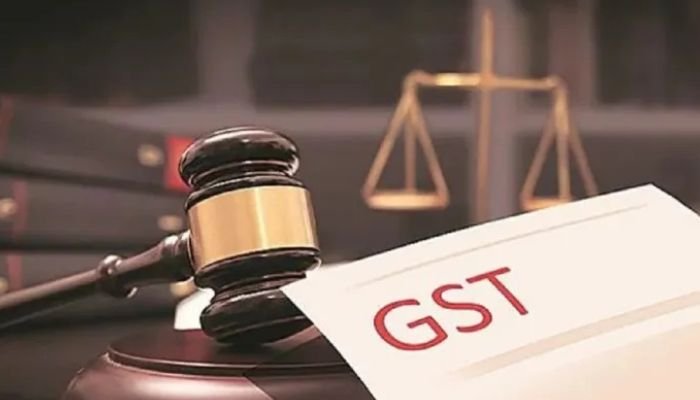In a groundbreaking legal development, the Orissa High Court has recently addressed the concerns of 245 petitioners by disposing of their writ petitions. This significant decision revolves around the court's response to challenges faced by taxable individuals who were unable to file appeals within the stipulated timeframe under the Central Goods and Services Tax Act, 2017. Let's delve into the key details of this transformative judgment.
| Table Section |
| 1. Introduction |
| 2. Background: |
| 3. Amnesty Scheme Unveiled: |
| 4. Key Takeaways from the Court's Decision: |
| 5. (FAQs) |
| 6. Conclusion |
Background:
The writ petitions originated from the rejection of appeals by the Revenue Department, citing them as time-barred under sub-sections (1) and (4) of Section 107 of the CGST Act. Seeking relief, the aggrieved petitioners utilized constitutional avenues, filing petitions under Articles 226 and 227 of the Constitution of India.
Amnesty Scheme Unveiled:
During the pendency of these writ petitions, the Ministry of Finance, Department of Revenue, Central Board of Indirect Taxes and Customs (CBIC), introduced a game-changing element. Notification No. 53/2023 – Central Tax, issued on November 2, 2023, outlined a special procedure under the amnesty scheme for filing appeals. This scheme specifically catered to taxable individuals who, due to various reasons, were unable to file appeals on or before March 31, 2023, against orders passed under Section 73 or 74 of the CGST Act.

Key Takeaways from the Court's Decision:
-
Recognition of Amnesty Scheme Significance: The Orissa High Court acknowledged the critical role played by Notification No. 53/2023 – Central Tax, which provided a clear framework for filing appeals in cases where the initial appeal deadline couldn't be met.
-
Setting Aside Impugned Orders: In a decisive move, the court set aside the first appellate orders (Impugned Orders) and remanded the matters to the Respondent. This directive was aimed at ensuring that the proceedings moved forward in strict adherence to the law.
-
Consideration of Tax Deposits: The court emphasized a nuanced approach by highlighting the importance of the tax amounts deposited by the petitioners. Whether paid voluntarily or as per interim court orders, these deposits were to be factored into the decision-making process. Any potential refunds would hinge on the outcome of the appeals.
Conclusion:
The Orissa High Court's resolution of 245 writ petitions through remand to the Appellate Authority under the Amnesty Scheme is a testament to the judiciary's adaptability. This decision not only considers the evolving legal landscape but also provides a lifeline to those who missed initial appeal deadlines. As the legal framework continues to evolve, this development underscores the importance of proactive measures to ensure a fair and just resolution for all parties involved in tax disputes.
एक अभूतपूर्व कानूनी विकास में, उड़ीसा उच्च न्यायालय ने हाल ही में 245 याचिकाकर्ताओं की रिट याचिकाओं का निपटारा करके उनकी चिंताओं को संबोधित किया है। यह महत्वपूर्ण निर्णय उन कर योग्य व्यक्तियों के सामने आने वाली चुनौतियों पर अदालत की प्रतिक्रिया के इर्द-गिर्द घूमता है जो केंद्रीय वस्तु और सेवा कर अधिनियम, 2017 के तहत निर्धारित समय सीमा के भीतर अपील दायर करने में असमर्थ थे। आइए इस परिवर्तनकारी निर्णय के मुख्य विवरणों पर गौर करें।
| खंड |
| 1. परिचय |
| 2. पृष्ठभूमि: |
| 3. .एमनेस्टी योजना का अनावरण: |
| 4.न्यायालय के निर्णय की मुख्य बातें: |
| 5. पूछे जाने वाले प्रश्न(FAQs) |
| 6. निष्कर्ष |
पृष्ठभूमि:
रिट याचिकाएँ राजस्व विभाग द्वारा सीजीएसटी अधिनियम की धारा 107 की उप-धारा (1) और (4) के तहत समय-बाधित होने का हवाला देते हुए अपीलों की अस्वीकृति से उत्पन्न हुईं। राहत की मांग करते हुए, पीड़ित याचिकाकर्ताओं ने संवैधानिक रास्ते का इस्तेमाल करते हुए भारत के संविधान के अनुच्छेद 226 और 227 के तहत याचिकाएं दायर कीं।
एमनेस्टी योजना का अनावरण:
इन रिट याचिकाओं के लंबित रहने के दौरान, वित्त मंत्रालय, राजस्व विभाग, केंद्रीय अप्रत्यक्ष कर और सीमा शुल्क बोर्ड (सीबीआईसी) ने एक गेम-चेंजिंग तत्व पेश किया। 2 नवंबर, 2023 को जारी अधिसूचना संख्या 53/2023 - केंद्रीय कर, अपील दायर करने के लिए माफी योजना के तहत एक विशेष प्रक्रिया की रूपरेखा तैयार करती है। यह योजना विशेष रूप से उन कर योग्य व्यक्तियों के लिए है, जो विभिन्न कारणों से, सीजीएसटी अधिनियम की धारा 73 या 74 के तहत पारित आदेशों के खिलाफ 31 मार्च, 2023 को या उससे पहले अपील दायर करने में असमर्थ थे।

न्यायालय के निर्णय की मुख्य बातें:
1. एमनेस्टी योजना के महत्व को मान्यता: उड़ीसा उच्च न्यायालय ने अधिसूचना संख्या 53/2023 - केंद्रीय कर द्वारा निभाई गई महत्वपूर्ण भूमिका को स्वीकार किया, जिसने उन मामलों में अपील दायर करने के लिए एक स्पष्ट रूपरेखा प्रदान की, जहां प्रारंभिक अपील की समय सीमा पूरी नहीं हो सकी।
2. विवादित आदेशों को रद्द करना: एक निर्णायक कदम में, अदालत ने प्रथम अपीलीय आदेशों (आक्षेपित आदेशों) को रद्द कर दिया और मामलों को प्रतिवादी को भेज दिया। इस निर्देश का उद्देश्य यह सुनिश्चित करना था कि कार्यवाही कानून का कड़ाई से पालन करते हुए आगे बढ़े।
3. कर जमा पर विचार: अदालत ने याचिकाकर्ताओं द्वारा जमा की गई कर राशि के महत्व पर प्रकाश डालते हुए एक सूक्ष्म दृष्टिकोण पर जोर दिया। चाहे स्वेच्छा से भुगतान किया गया हो या अंतरिम अदालत के आदेशों के अनुसार, इन जमाओं को निर्णय लेने की प्रक्रिया में शामिल किया जाना था। कोई भी संभावित रिफंड अपील के नतीजे पर निर्भर करेगा।
पूछे जाने वाले प्रश्न(FAQs)
Q1: उड़ीसा उच्च न्यायालय में 245 रिट याचिकाएँ दायर करने का क्या कारण है?
ए1: याचिकाएं राजस्व विभाग द्वारा केंद्रीय माल और सेवा कर अधिनियम की धारा 107 की उप-धारा (1) और (4) के तहत समय-बाधित होने का हवाला देते हुए अपीलों की अस्वीकृति के जवाब में दायर की गई थीं।
Q2: याचिकाकर्ताओं द्वारा अपनी अपीलों में सामना किया गया प्राथमिक मुद्दा क्या था?
ए2: प्राथमिक मुद्दा सीजीएसटी अधिनियम की धारा 107 के तहत समय-बाधित होने के कारण राजस्व विभाग द्वारा अपील की अस्वीकृति थी।
Q3: रिट याचिकाओं के लंबित रहने के दौरान वित्त मंत्रालय ने क्या महत्वपूर्ण कदम उठाया?
ए3: वित्त मंत्रालय ने केंद्रीय अप्रत्यक्ष कर और सीमा शुल्क बोर्ड (सीबीआईसी) के माध्यम से अधिसूचना संख्या 53/2023 - केंद्रीय कर जारी किया, जिसमें अपील दायर करने के लिए माफी योजना के तहत एक विशेष प्रक्रिया शुरू की गई।
Q4: एमनेस्टी योजना क्या संबोधित करती है, और यह किसकी सेवा करती है?
ए4: एमनेस्टी योजना उन मामलों को संबोधित करती है जहां कर योग्य व्यक्ति सीजीएसटी अधिनियम की धारा 73 या 74 के तहत पारित आदेशों के खिलाफ 31 मार्च, 2023 को या उससे पहले अपील दायर करने में असमर्थ थे। यह विशेष रूप से इस श्रेणी के अंतर्गत आने वाले व्यक्तियों की सेवा करता है।
Q5: उड़ीसा उच्च न्यायालय ने अपने फैसले में एमनेस्टी योजना पर क्या रुख अपनाया?
ए5: अदालत ने अधिसूचना संख्या 53/2023 - केंद्रीय कर के महत्व को पहचाना और उन मामलों में अपील दायर करने के लिए एक प्रक्रियात्मक ढांचा प्रदान करने में अपनी भूमिका पर जोर दिया जहां प्रारंभिक अपील की समय सीमा पूरी नहीं हो सकी।
प्रश्न 6: न्यायालय ने प्रथम अपीलीय आदेश (आक्षेपित आदेश) को कैसे संबोधित किया?
ए6: अदालत ने विवादित आदेशों को रद्द कर दिया और मामलों को प्रतिवादी को सौंप दिया और उन्हें कानून के अनुसार आगे बढ़ने का निर्देश दिया।
Q7: याचिकाकर्ताओं द्वारा किए गए कर जमा के संबंध में अदालत ने किस विचार पर जोर दिया?
ए7: अदालत ने इस बात पर जोर दिया कि कर जमा, चाहे स्वेच्छा से किया गया हो या अंतरिम अदालत के आदेशों के अनुसार, मामलों को योग्यता के आधार पर तय करते समय ध्यान में रखा जाना चाहिए। कोई भी संभावित रिफंड अपील के नतीजे पर निर्भर होगा।
प्रश्न8: याचिकाकर्ताओं द्वारा जमा किए गए कर पर विचार करने के लिए अदालत ने क्या मानदंड निर्दिष्ट किए?
ए8: अदालत ने इस बात पर प्रकाश डाला कि याचिकाकर्ताओं द्वारा जमा की गई कर राशि, चाहे स्वेच्छा से या अंतरिम अदालत के आदेशों के अनुसार, निर्णय लेने की प्रक्रिया में शामिल की जानी चाहिए। अपीलों का परिणाम निर्धारित करने में यह विचार महत्वपूर्ण है।
प्रश्न9: न्यायालय ने अपने निर्णय में संतुलित दृष्टिकोण पर किस प्रकार बल दिया?
ए9: अपील के नतीजे के आधार पर कर जमा और उसके बाद के रिफंड, यदि कोई हो, पर विचार करने पर अदालत का जोर एक संतुलित दृष्टिकोण को दर्शाता है। यह दृष्टिकोण याचिकाकर्ताओं और राजस्व विभाग दोनों की चिंताओं को दूर करने में निष्पक्षता और समानता सुनिश्चित करता है।
प्रश्न10: इन रिट याचिकाओं के समाधान में उड़ीसा उच्च न्यायालय के निर्णय का समग्र महत्व क्या है?
ए10: यह निर्णय महत्वपूर्ण महत्व रखता है क्योंकि यह न केवल कर योग्य व्यक्तियों के सामने आने वाली चुनौतियों को स्वीकार करता है बल्कि न्यायपालिका की अनुकूलन क्षमता को भी दर्शाता है। एमनेस्टी योजना के तहत मामलों को अपीलीय प्राधिकरण को भेजकर, अदालत कर विवादों में उभरते कानूनी परिदृश्य के अनुरूप, इसमें शामिल सभी पक्षों के लिए निष्पक्ष और उचित समाधान सुनिश्चित करती है।
निष्कर्ष:
उड़ीसा उच्च न्यायालय द्वारा एमनेस्टी योजना के तहत अपीलीय प्राधिकरण को रिमांड के माध्यम से 245 रिट याचिकाओं का समाधान न्यायपालिका की अनुकूलनशीलता का एक प्रमाण है। यह निर्णय न केवल उभरते कानूनी परिदृश्य पर विचार करता है बल्कि उन लोगों के लिए एक जीवन रेखा भी प्रदान करता है जो प्रारंभिक अपील की समय सीमा से चूक गए थे। जैसे-जैसे कानूनी ढांचा विकसित हो रहा है, यह विकास कर विवादों में शामिल सभी पक्षों के लिए निष्पक्ष और उचित समाधान सुनिश्चित करने के लिए सक्रिय उपायों के महत्व को रेखांकित करता है।



